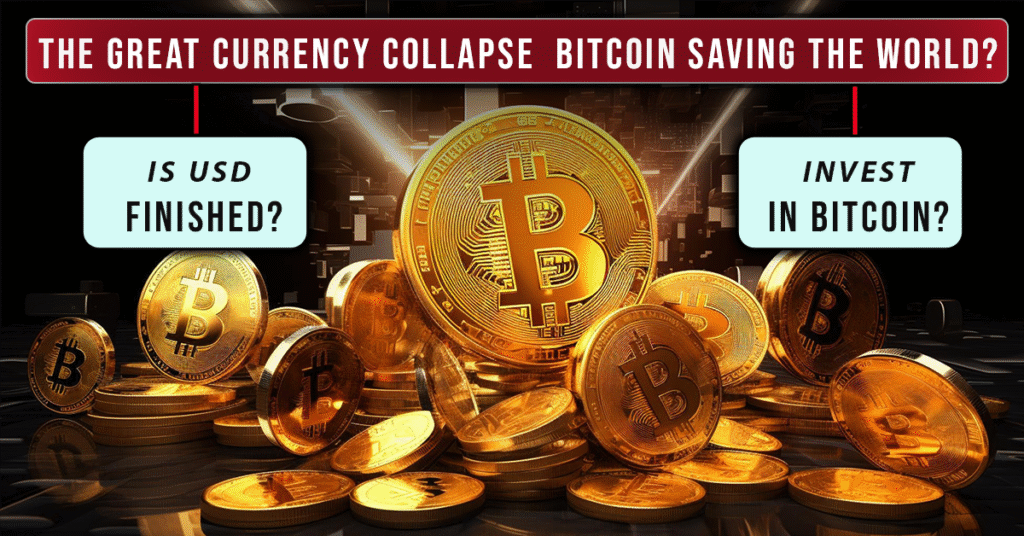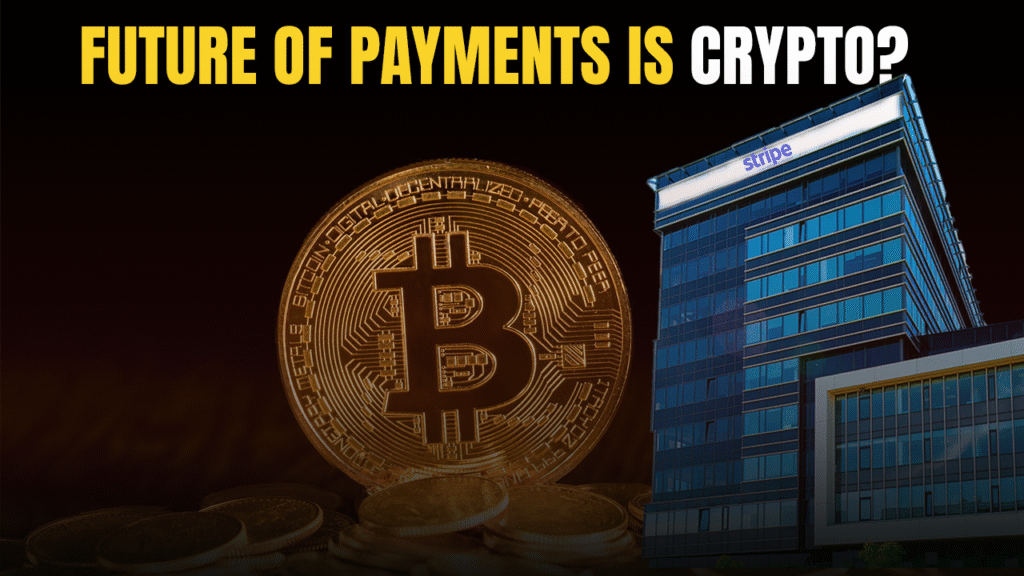
A run of fiscal panic across the world markets has precipitated an unprecedented shift in investors to other stores of value, including Bitcoin and gold, as trust in leading fiat currencies is shaken by increasing debt loads and geopolitical turmoil.
The U.S. dollar index has weakened in the last two weeks, the Japanese yen has fallen to multi-decade lows, and the euro has not been able to keep its feet off the ground against the dollar and digital currencies. The change is an indication of rising uncertainty over the sustainability of sovereign debt and the sustainability of existing monetary structures – a note that is currently being expressed by the skyrocketing demand levels of non-sovereign assets.
Pressures of Debt and Deficit Grow
Debt accumulated in the world has reached the point of 320 trillion, according to the Institute of International Finance, and the advanced economies have been at the forefront of the runaway growth. This is because of the mounting fiscal deficits, particularly in the United States, Japan and some regions of Europe, which is causing fear that central banks will finally have to monetise their debts, which will destroy confidence in fiat currency.
The increasing understanding is that fiscal leadership can soon replace monetary leadership, according to one of the London-based macro strategists. Investors are now hedging against the risk of inflationary forces being structural and not cyclical.
Bitcoin as New Gold Digital
Bitcoin, previously seen as a fanciful endeavour at some point in past cycles, is coming to be seen more and more by institutional players as a currency debasement hedge. The cryptocurrency has been on a steep ascent over the past few weeks, surpassing the level of $75,000, propelled by a heavy inflow of investments into spot Bitcoin exchange-traded funds (ETFs) and the sensation that it represents an inflation-resistant, decentralised alternative to government-purchasable monies.
According to analysts at the market, the relationship between the Bitcoin and the standard risk assets like equities has declined, which indicates that investors are considering it to be a macro hedge and not a speculative investment.
A digital asset researcher with a Singapore-based hedge fund said that Bitcoin is beginning to act like a monetary asset and not a tech stock. The non-sovereign assets, such as Bitcoin, become legitimate when the fiscal credibility is questioned.
Gold Shines as Old Safe Haven Returns
Even gold has made a strong comeback, reaching over $2,500 per ounce due to the safety precautions people have taken in real asset holdings. Central banks, and especially emerging market central banks, are increasing their gold reserves at a pace that demonstrates a change of loyalties towards the U.S. dollar-dominated system.
China and India have dominated the formal sector buying as the People’s Bank of China has purchased more gold in the twelfth month. Analysts interpret this as a larger shift to monetary diversification as countries look to be cushioned against Western sanctions and dollar fluctuation.
A more underlying structural fear, the loss of faith in fiat-based monetary order, is what is causing the gold market to react, not just to inflation fears, but to a deeper structural anxiety, said an economist at the Bank for International Settlements.
Currency Volatility Indicates Organisational Tension
The low value of the Japanese yen is now a symbol of a stronger dislocation throughout the world. Although there are verbal interventions, the yen remains around 160 per dollar, indicating doubt about the ability of the Bank of Japan to normalise policy by investors. In the meantime, the euro is struggling as Europe struggles with stagnant growth and fiscal fragmentation.
To the emerging markets, this volatility is a two-fold entrapment: to protect their currencies by raising interest rates, yet with their domestic growth slumping. A number of the Asian and Latin American central banks have already indicated that they are keeping a keen eye on foreign exchange stability.
A Monetary Psychological Paradigm Shift
The present migration into hard and digital resources represents a mental shift. Investors are no longer after yield, but they are after trust. That faith, it is said, is being undermined through fiscal experimentation on a scale never attempted before, geopolitical fragmentation and the gradual disintegration of the boundary between monetary and fiscal policy.
As soon as the confidence of government balance sheets is undermined, the scramble for the neutral assets is increased, noted a top economist of a European think tank. Gold and Bitcoin are two sides of that indifference, one prehistoric, one programmed.
Conclusion
As much as the policymakers reckon that fiscal consolidation is still attainable, the market is telling them otherwise. As old-fashioned currencies fail to balance the burden of political entreaties and institutional distortions, both Bitcoin and gold have become an alternative financial system – one based on code, the other on history.
It is yet to be determined whether this turn is a short-lived shelter or a long-term reorganisation of global finance. But the market signals are clear: trust, once misplaced in the fiat systems, can hardly be easy to come by again.
A digital marketer possessing excellent knowledge and skill in off-page, on page and local SEO is competent in the challenging environment. Hard-working, energetic, and a quick learner for any task delegated. Enthusiastic to learn and constantly upgrade knowledge. Mohit brings over 2 years of experience in crafting content that not only ranks well but also provides valuable insights to readers.

